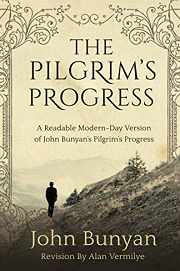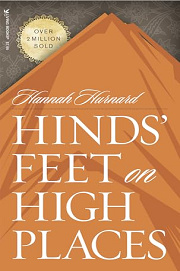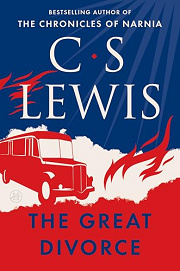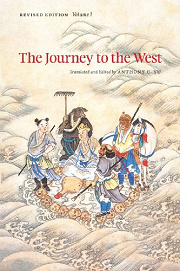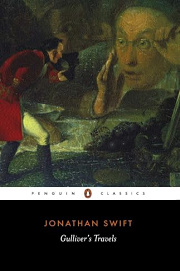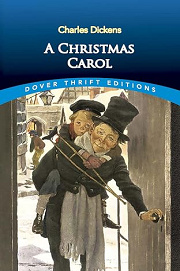Share your thoughts in a quick Shelf Talk!
The Pilgrim’s Progress by John Bunyan
Lost in a wilderness of trial and temptation, a traveler seeks the shining city beyond. Allegory becomes adventure in The Pilgrim’s Progress, a timeless journey of moral testing, hard-won courage, and the hope that guides us home.
Have you read this book? Share what you liked (or didn’t), and we’ll use your answers to recommend your next favorite read!
Love The Pilgrim’s Progress but not sure what to read next?
These picks are popular with readers who enjoyed this book. Complete a quick Shelf Talk to get recommendations made just for you! Warning: possible spoilers for The Pilgrim’s Progress below.
In The Pilgrim’s Progress, did you enjoy ...
... a Christian allegory where named companions embody virtues and vices guiding a perilous pilgrimage?
Hinds' Feet on High Places by Hannah Hurnard
If you were moved by Christian laying down his burden at the Cross, guided by Evangelist and opposed by figures like Giant Despair and Apollyon, you'll find a kindred journey in Hinds' Feet on High Places. Much-Afraid’s path to the High Places mirrors the way-station trials of the Slough of Despond and Vanity Fair: she travels with companions whose very names signal their roles, faces literalized fears and temptations, and learns—step by step—what Christian learned on the road to the Celestial City.
... a vivid Christian vision of the soul’s journey toward Heaven, told through emblematic encounters?
The Great Divorce by C. S. Lewis
As The Pilgrim’s Progress moves from the City of Destruction toward the Celestial City, pausing for soul-testing meetings at Vanity Fair and Doubting Castle, The Great Divorce traces a bus ride from a dreary gray town toward the mountains of Heaven. Along the way, the narrator meets spirits whose choices echo Christian’s temptations—clinging to pride, resentment, or false piety—offering the same piercing, hopeful clarity about grace that you felt when Christian’s burden finally fell away.
... a quest narrative propelled by a clear destination and trials along the road to a sacred goal?
Journey to the West by Wu Cheng'en
If Christian’s fixed aim—reaching the Celestial City despite the Slough, Apollyon, and Vanity Fair—kept you turning pages, the monk Xuanzang’s sacred mission to obtain scriptures will hit the same nerve. With companions like the irrepressible Monkey King, every chapter presents a new obstacle or tempter much like Giant Despair or Talkative, transforming the straight path into a gauntlet whose moral and spiritual stakes echo Christian’s goal-driven march.
... an episodic journey through emblematic lands where each stop satirizes a facet of human folly?
Gulliver's Travels by Jonathan Swift
If the way The Pilgrim’s Progress unfolds as a chain of instructive stops—Slough of Despond, House Beautiful, Vanity Fair—appealed to you, Gulliver’s Travels offers a parallel rhythm. Gulliver’s visits to Lilliput, Brobdingnag, and beyond function like moral stations on the road, each encounter exposing a vice or delusion much as Christian’s meetings with Mr. Worldly Wiseman or the judges of Vanity Fair lay bare spiritual dangers.
... an unambiguous moral arc that leads from burdened guilt to repentance and transformation?
A Christmas Carol by Charles Dickens
If Christian’s conversion—shedding the crushing load of sin and pressing on despite Doubting Castle—gave you that clear moral lift, Scrooge’s night of reckonings will resonate. Guided by spirits who, like Evangelist and Faithful, illuminate the narrow way, he confronts the wages of his choices and emerges changed, much as Christian renews his steps after each temptation on the road to the Celestial City.
Unlock your personalized book recommendations! Just take a quick Shelf Talk for The Pilgrim’s Progress by John Bunyan. It’s only a few questions and takes less than a minute.
